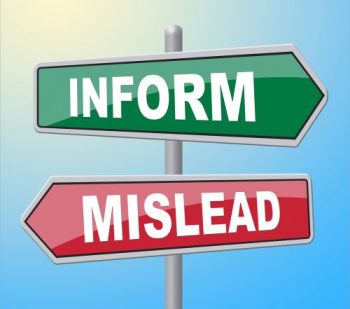Asparagine Study: USA Today Takes the Lazy Road
A recent study prompted misleading headlines and news stories, an occurrence all too familiar this day and age. The study in question looked at the impact an amino acid, called asparagine, had on mice with aggressive cancer cells. The findings showed that the spread of aggressive cancer cells increased in mice given higher levels of asparagine.
Recap of the Asparagine Study
- The study was done on mice with no immune systems, not on humans.
- The compound asparagine was not found to cause cancer, but to increase the spread of cancer cells the mice already had.
- Seafood was never mentioned in the study.
Reporting on the Study
Unfortunately, lazy journalists who saw this study as an opportunity for a quick, sensational article began reporting that cutting out foods containing asparagine could stop the spread of cancer; a drastic leap from the findings of a study completed on lab mice.
An article in USA Today, by Sean Rossman, contains some of the most egregious reporting, claiming “Future cancer treatments may come with a specific dietary recommendation — eat less asparagus, potatoes and seafood.” The report goes on to list “dairy, beef, poultry, eggs, nuts, seeds and whole grains” as other asparagine-rich foods. We would challenge Mr. Rossman to find any find any public health professional who would suggest cutting ties to whole, nutrient-rich foods, such as seafood, as part of a cancer-fighting diet.
To note, the head nurse from Cancer Research UK, an organization that helped fund the study, said in its press release, “At the moment, there is no evidence that restricting certain foods can help fight cancer…” Yet, Mr. Rossman failed to include this, or other needed context, in his report.
Backlash
- The American Institute for Cancer Research (AICR) addressed the study and media pick-up in a blog post. AICR digs into the study and notes that many healthful foods contain low levels of asparagine, plus the compound “can be created in the body from other amino acids and it is necessary particularly for the proper functioning of the nervous system.” AICR’s bottom line? “An interesting finding that may possibly lead to treatment options in the future. If you like asparagus, keep eating it as part of a balanced healthy diet.”
A few news outlets also addressed the media frenzy.
- The Mercury News “Should you avoid asparagus? Maybe not” described the new study and its findings and said, “legions made the assumption that you should cut asparagus, as well as potatoes and seafood (which are also high in asparagine) out of your diet to stave off cancer. But now many doctors are warning against this assumption, pointing out that asparagus will not give you cancer.”
- Business Insider also addressed the study in “A new study linking asparagus to cancer is freaking people out — here’s how concerned you should be.” “If curing cancer was really as easy as cutting a few ingredients from your diet, scientists would have probably already unlocked a fix. Understanding how chemical compounds interact with cancer’s spread is a complicated task, and while researchers are gathering new clues, we’re still far away from a simple solution.”
Letter to the Editor
Additionally, NFI responded to the USA Today article right away with a Letter to the Editor, but we did not get a response.
Dear Mr. Bill Sternberg,
I don’t particularly want to restate the title of your recent article about cancer and diet as I’m afraid it will further perpetuate misinformation that is not only confusing, but potentially harmful to public health. The headline and article claimed that numerous healthful foods – many of which are included in dietary patterns shown to reduce cancer risk – may increase the spread of cancer. This very big leap is based on one study…of mice…that were given diets rich in the amino acid asparagine. Sound dietary advice is based on many studies…of humans…who eat the actual foods in question. So, we’re striking out three for three here. The worst part?
Many of the healthful foods mentioned in these American Institute for Cancer Research (AICR) articles – plant foods like asparagus and whole grains as well as protein choices beyond red meat like seafood and poultry – are actually recommended as part of a cancer-protective diet, not to mention heart- and weight-healthy diets. I ask that this knee-jerk piece of journalism be revisited before it can do any further harm.
Sincerely,
Brandon Phillips
Sr. Director Communications & Advocacy
National Fisheries Institute
Conclusion
Suggesting that readers avoid healthy foods, such as seafood – which is arguably among the healthiest foods on the planet – without providing further context about the study is lazy at best, irresponsible at worst. It’s good to see other organizations and news outlets address reckless reporting about this new study, like the article we saw in USA Today.



